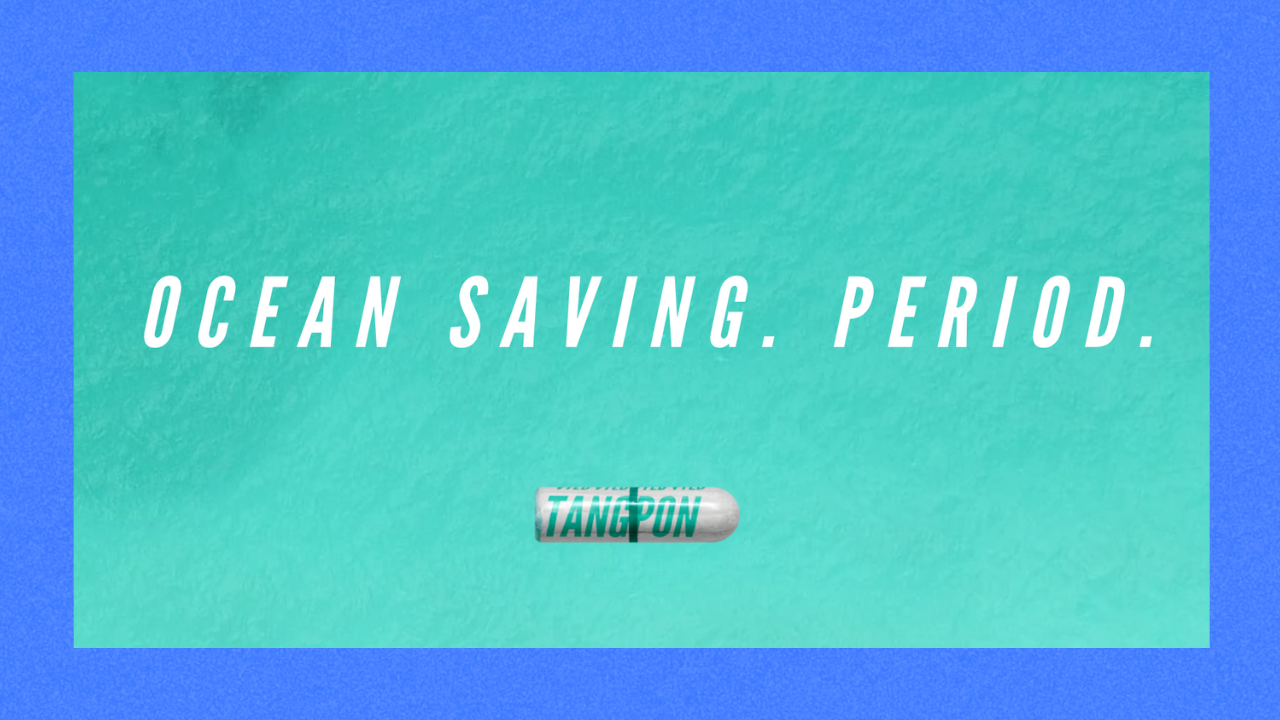Case study: The profit-for-purpose company, Vyld
Oct 07, 2024
We’ve been looking forward to sharing this large case study with you, where we take a closer look at the Profit-for-purpose company Vyld.
About Vyld
Vyld is a German startup that is advancing seaweed as a raw material for absorbent products.
Following the successful consumer trial of the Kelpon (a tampon made from seaweed) with over 100 menstruators in fall 2023, it started a pilot phase of the Dyper: a compostable diaper with an algae core, without plastic and superabsorbents. They compost the used diapers under controlled conditions and plant a small forest from the organic fertilizer, the diaper forest.
It was founded in 2021 by Ines Schiller and Melanie Schichan.
What makes it a Profit-For-Purpose company:
Reviewing its Ownership & Governance Structure
Vyld has a steward-ownership structure.
This means that the company is owned and steered by active stewards, not absent shareholders. Profits cannot be extracted but must be reinvested into the company or donated to charity. Shares cannot be sold for a profit, meaning owners can't make a classic "exit."
The principles of steward ownership are written into the statutes of the operating company.
Vyld has three types of shares:
1) Golden share (A share): Safeguarding by Purpose Foundation
A golden share with 1 percent of the voting rights (veto right) ensures compliance with the steward-ownership principles in the statutes. This is the control mechanism.
2) Steward shares (B shares): Employees make decisions
Shares with voting rights but without dividend rights or participation in liquidation proceeds. This is the governance mechanism.
3) Founder shares (C shares): Shares with capped economic rights but without voting rights will be held only by the founders, Ines and Melanie, for their founder's compensation. C-Shares will cease to exist once the founders are compensated in full.
Why choose steward-ownership?
1) It is a way of aligning the legal structure with the company's purpose.
2) It's a long-term protection of the purpose. Here, in a moment of strength, the founders did it to ensure they wouldn't do something they regretted in a moment of weakness (as seen so many times before).
3) In a world of greenwashing and companies walking away from pledges, this is a powerful way to communicate the company's commitment because it is legally binding.
Funding Background Story
VYLD was and is in a research and development stage and works in the material sector, which means they couldn't bootstrap all the way. They needed substantial financing to move forward while wanting to remain independent and true to their mission.
Round 1 (pre-seed) 2021:
Who:
Business angels and impact investors.
Type of loan:
Subordinated loans, where investors will receive a capped but risk-adequate return if the company is successful.
The problems with Round 1:
Subordinated loans - even when structured like equity and therefore less risky for the loanée/investée – show up as debt on a balance sheet.
This is a problem because grant-givers, banks, and future investors would see Vyld as over-indebted, even though that is not true.
That's why they decided to create something different: a financial structure recognized as equity on a balance sheet but still with capped returns, independence, and no exits.
They named it the Future Profit Partnership Agreement (FPPA)
What is FPPA?
-
Hybrid Financial Instrument: The FPPA combines equity and debt features, providing flexibility in financing while maintaining control over the company.
-
Capital Raising Without Equity Dilution: Startups can raise capital without giving up ownership or diluting equity, preserving the founder's control and decision-making power.
-
Profit-sharing mechanism: Investors receive a share of future profits instead of equity, which aligns investor returns with the company's success without the pressure to pursue an exit.
-
No Fixed Interest Payments: Unlike traditional debt, no fixed interest payments exist. Instead, repayments are based on a percentage of profits, reducing the financial strain on the startup in the early stages.
-
Mission-Aligned Investment: They designed the FPPA to attract investors who are aligned with the company's long-term mission and values rather than those seeking short-term returns.
-
Flexibility in Repayment: Investor repayments are flexible and tied to the company's profitability, allowing the business to reinvest profits back into growth when needed.
-
Preserve Independence: By avoiding traditional equity financing, startups maintain their independence and prevent pressure to scale at the expense of their core mission.
This is a brilliant financing instrument for purpose-driven startups that can't bootstrap and for investors who care about impact.
It's finance with limited hubris.
What are the problems with the simpler and more famous, venture capital (VC) equity funding?
VC Funds usually work like this:
-
VC funds typically have a 10-year lifecycle:
-
The first 1-3 years investing,
-
Then 5-7 years of growing investments,
-
And lastly, 1-3 years of selling/exiting.
-
VCs invest in startups with high risk/high reward expectations. Startups typically need to grow 10-50x within 5-7 years (hyper growth) to deliver what they have promised in return for their investment. They have also given up voting rights, which are tied to economic rights in a conventional business, meaning they have given up control and independence. The specific numbers depend on several components, such as business maturity, the region, and the particular VC fund (some funds are better than others)
-
This means the company must prioritize growth over purpose, leading to short-term goals over long-term vision. It's an all-or-nothing situation. And here, nothing refers to both bankruptcy and watering down the purpose; in case the product category that aligns with its purpose can't keep up with the growth goals, it's the purpose that has to give in, not the growth goals.
Let's say, in (a simplified) Vyld's situation, if they could grow 5x over the next 5 years and stay true to its purpose, that would not be good enough for a VC, and they would have to do something else to fuel growth, such as start selling regular non-compostable plastic-based diapers and add 5% of seaweed, branding (greenwashing) them as the Seaweed Diapers.
In a perfect world, we probably should do without VC funding, but this isn't an ideal world, and we need channels for getting money out of bank accounts and into the real economy, into green businesses and initiatives that need to grow (to grow up eventually) as other sectors degrow.
So, VC equity investments can work for some, but the fact that less than 1% of businesses receive venture funding tells you that this is not for everyone.
An environmental note about seaweed, hubris and limits to growth
Vyld's vision extends beyond individual products. It talks about an 'Algaeverse' of non-food products that leverage algae's potential as a raw material and contribute to ocean regeneration.
It works primarily with marine macroalgae, specifically brown algae (Phaeophyceae).
On the positive side, growing seaweed in marine permaculture helps stabilize existing ecosystems. Algae provide a nursery, food, and habitat for fish and other animals. They bind large amounts of CO2 and nitrogen, helping counteract ocean acidification.
It is also a zero-input crop, meaning it does not require fresh water, pesticides, fertilizers, or land resources.
As a surprising bonus, absorbent seaweed fibers are great for tampons because they are naturally white and do not need to be chemically bleached.
But as with anything else, there can be too much of a good thing. On a general note, so not related specifically to Vyld, small-scale farms are seen as low risk, while large-scale seaweed farms are associated with the following risk factors: disease acceleration, community genetic modifications, and huge variations in the local physicochemical characteristics of the ecosystem (Bhuyan, 2023).
That's why restraint and balance is needed.
It's a good thing that Vyld is steward-owned (not a classic for-profit) and has financed its early stage with an FPPA (not a VC equity investment) to ensure that it can stay true to its purpose and not compromise marine life.
Quote from an investor
Investor Kai Viehof commented: "Vyld shows that neither shareholder value-driven venture capital nor unbridled growth is needed to successfully implement sustainable ideas that really make a difference for our planet and our society. However, change can only become possible on a broad scale if investors also rethink and provide the necessary capital fairly and with reasonable return expectations."
